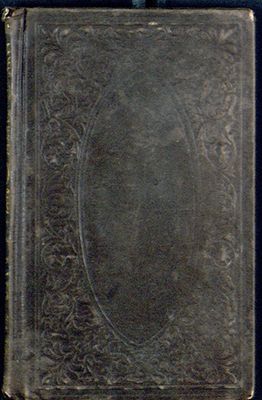
Project Gutenberg's History of Orrin Pierce, by American Sunday-School Union This eBook is for the use of anyone anywhere at no cost and with almost no restrictions whatsoever. You may copy it, give it away or re-use it under the terms of the Project Gutenberg License included with this eBook or online at www.gutenberg.org Title: History of Orrin Pierce Author: American Sunday-School Union Release Date: January 13, 2014 [EBook #44658] Language: English Character set encoding: ISO-8859-1 *** START OF THIS PROJECT GUTENBERG EBOOK HISTORY OF ORRIN PIERCE *** Produced by musicinme57, Demian Katz and the Online Distributed Proofreading Team at http://www.pgdp.net (Images courtesy of the Digital Library@Villanova University (http://digital.library.villanova.edu/))

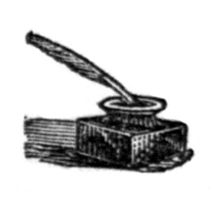
WRITTEN FOR THE AMERICAN SUNDAY-SCHOOL UNION, AND REVISED BY THE COMMITTEE OF PUBLICATION.
Philadelphia:
AMERICAN SUNDAY-SCHOOL UNION,
NO. 146 CHESTNUT STREET.
Entered according to act of Congress, in the year 1847, by The American Sunday-school Union, in the Clerk's Office of the District Court of the Eastern District of Pennsylvania.
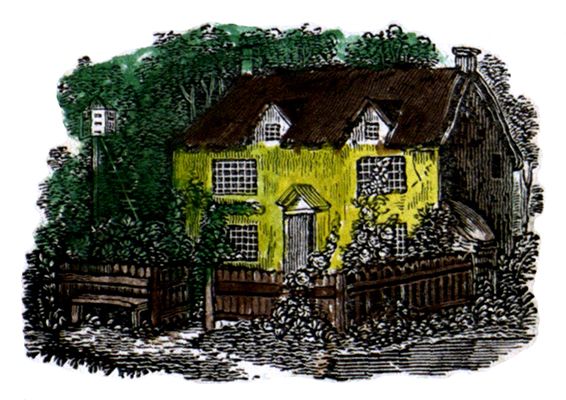
The cottage where Orrin Pierce was born stood by the side of a clear bright stream not far from the sea-shore. This cottage had a thatched roof, and was surrounded by a plain fence.
Orrin's mother was very fond of flowers, and the little yard in front of the cottage was filled with many beautiful plants and shrubs; some of them were trained up about the upper window and around the door. A marten's house stood on a post one side of the cottage, where three twittering birds built their nests in safety.
Everybody that passed Mrs. Pierce's house, looked at it with pleasure, and some even stopped to admire its neatness and comfortable appearance.
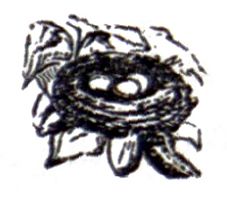
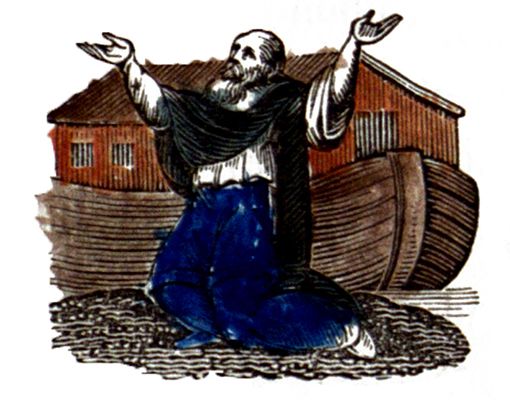
Noah.
Mrs. Pierce was an excellent woman; she feared God and instructed her little son out of the Scriptures. Before he was old enough to read, she used to read to him about the creation of the world; and before he was four years old, he could tell a great deal of Scripture history. He knew about the temptation and fall of man; the story of Noah; the deluge; the history of Joseph; the account of the Israelites in Egypt; the plagues sent upon Pharaoh; the departure of the children of Israel out of Egypt; their journey through the wilderness, and their entrance into the promised land. He also could relate the story of Daniel; of Israel, and many other accounts from the Bible.
Those who do not read the Bible are ignorant of some of the most interesting and important parts of the world's history.
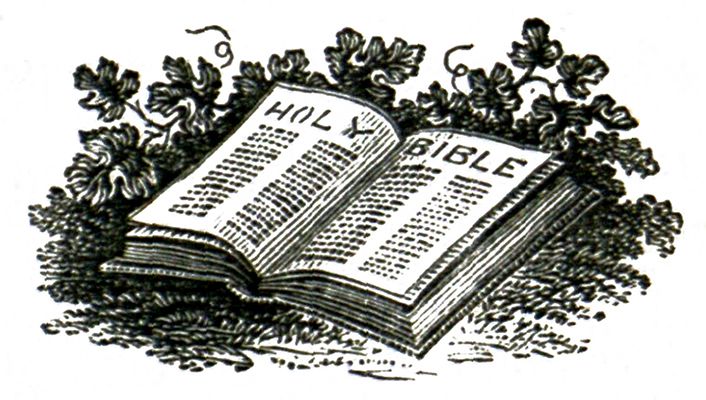
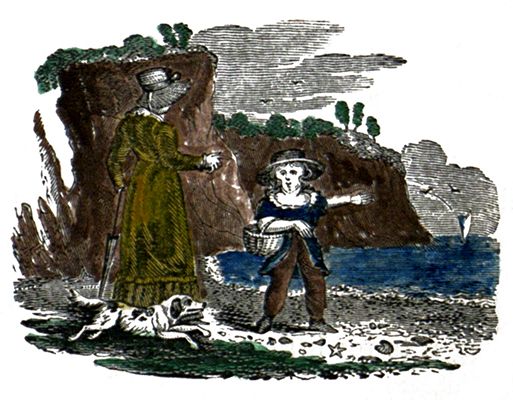
Sometimes Mrs. Pierce would walk out with little Orrin, and she always used to talk with him, so as to improve his mind. She would make him observe the works of God, and tell him of the wonders of Creation. Orrin was very fond of going to the sea-shore, and when he had been a good boy his mother would go there with him. He always took with him a basket to put his shells in, for there were many shells on the beach. His little dog, Dash, always went with him, and when Orrin threw a stick into the water, Dash would plunge in, and swim after it, and bring it to his little master.
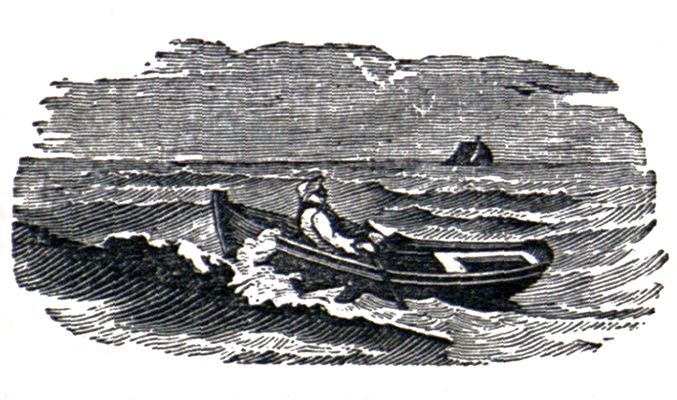
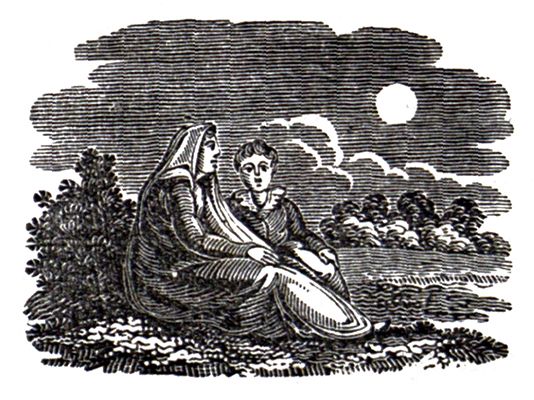
Often during the summer, when the evenings were mild and pleasant, she would walk in the fields with Orrin, and they would sit down to enjoy the beauty of the scene. The calm, full moon, shining above them, shed a soft light on all around. Sometimes a cloud would pass over it and hide for a moment its brightness, and they would watch for it as the cloud moved on, and it would suddenly burst upon their sight; on such occasions, Orrin used to repeat some passages of Scripture to his mother, giving thanks to God, who made the moon and stars to shine by night.

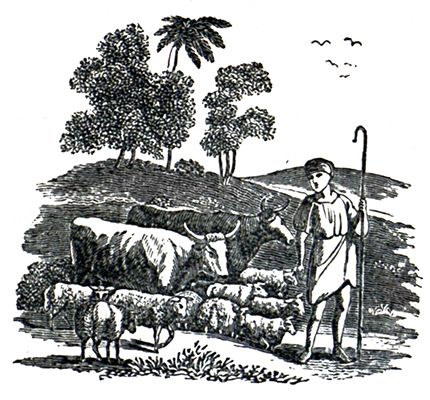
Orrin loved very much to see the different animals, that are for the use of man. He liked horses and cows and dogs very much, but best of all he liked the sheep and lambs. There was a field not far from his mother's cottage where a flock of sheep were often kept. He used to watch the shepherd taking care of the sheep, and when he noticed how readily they followed him, he thought of the words of Christ, "My sheep hear my voice, and I know them, and they follow me." He also remembered that this harmless animal was employed as a type of Christ, who is called "the Lamb of God, who taketh away the sin of the world."
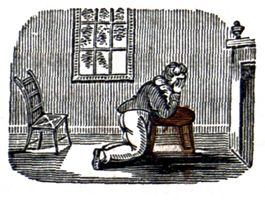
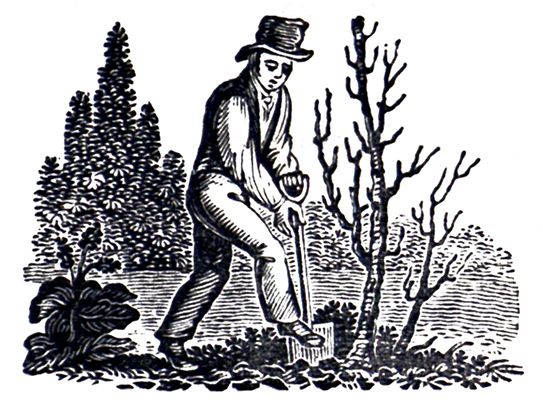
Mrs. Pierce gave her little son a place for a garden, which the gardener used to dig up for him. She gave him different seeds of plants and flowers. She bought him a shovel, a rake and a hoe, of a suitable size for a little boy. Here he used to amuse himself for hours. He had one tree in his garden which would not thrive, though he had bestowed much labour upon it, but finally he determined to remove it. Indeed the branches were many of them dead. He told his mother he was reminded of the passage in Luke xiii. 6, 9, for he had waited long for fruit, but found none, and he was going to remove the worthless tree.
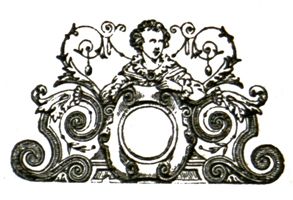
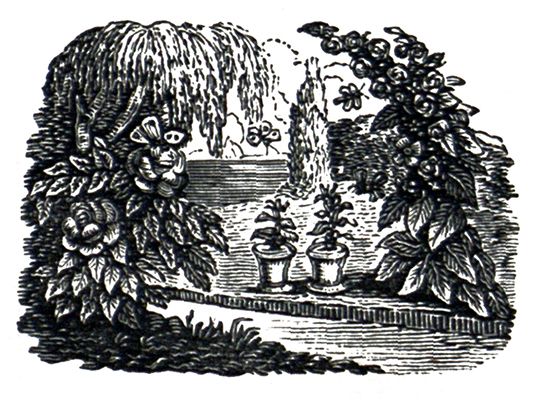
On a pleasant afternoon, it was very delightful to walk in Mrs. Pierce's garden. Orrin's garden spot was as neat and in quite as good order as his mother's. The roses were so fragrant, and the various colours of the numerous flowers so pleasing to the eye, that all admired who beheld them. The butterflies roamed from flower to flower undisturbed: the humming-birds and bees took their portion of the sweets, and pretty singing birds fluttered among the branches. Mrs. Pierce used often to point to the beautiful lilies, and say to Orrin, "Consider the lilies, how they grow, and remember the instruction they give."
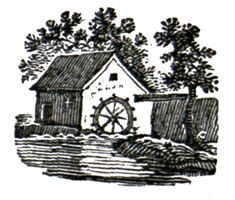
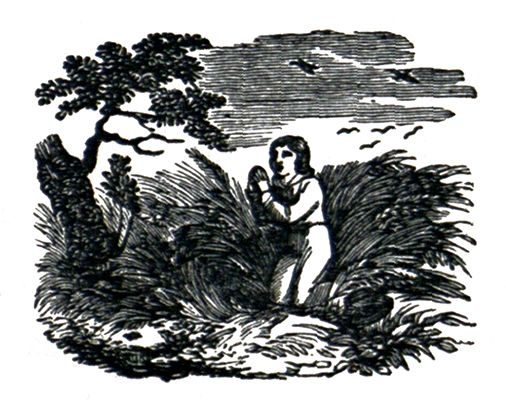
You may be sure Orrin was early taught to pray; and that he was careful never to forget or neglect this duty. He did not wait till after he was in bed, either, but kneeled down before he became sleepy, so that he might pray with the understanding. He used to pray for a new heart, so that he might love holiness and hate sin. He also prayed for the forgiveness of his sins. Sometimes he prayed when he was in the field or on his way to school, when he thought he should not be observed. He thanked God for all his mercies, but more than all for the gift of the Saviour; and when quite young, he could repeat many very pleasing verses about the love of Christ for this sinful world.
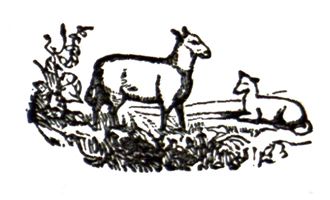
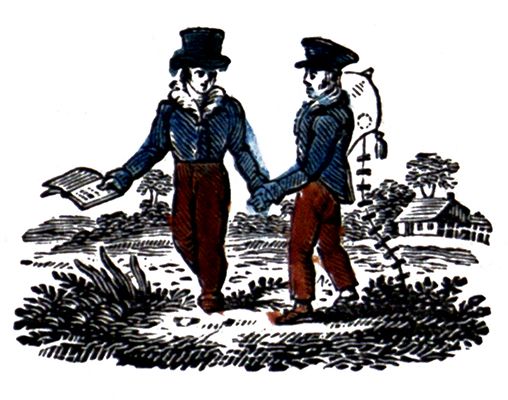
One day when Orrin was on his way to the Sabbath-school, he met a boy going across a field with a kite in his hand. He did not know the boy, but he knew he was about to commit sin, so he asked him if he would not leave his kite and go to the Sabbath-school. He opened his book and showed him where the lesson was, and told him that he would be much happier in learning to keep God's commandments, than all his kite-flying could make him. The boy thought so too, and was willing to take advice, so he hid his kite behind the fence, and went with Orrin. We should try to do good to all as we have opportunity.
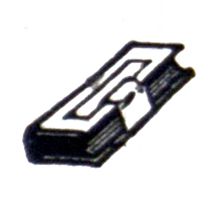
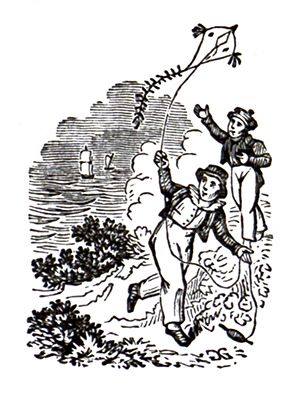
The next day he met the same boy flying his kite. He stopped as Orrin approached him, and said, "I thought yesterday when you asked me to go to the Sabbath-school that it was a pity to give up flying my kite, because there was such a good wind, but to-day the wind is just as good, and I have had a fine time with my kite." So he lost no pleasure, but gained much good. Orrin stayed a while and played with this boy, and told him he hoped to see him again at Sunday-school; and so he did, for he continued to attend regularly from that time.
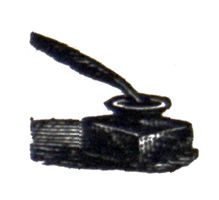
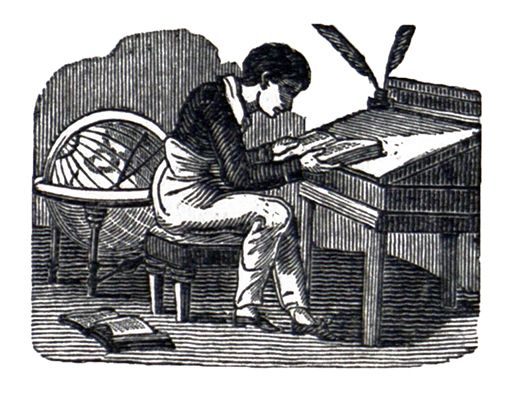
Orrin's mother was almost sorry when he was too old to be kept at home under her instruction. She felt afraid that when he began to be more from her watchful care he might become more like those boys whose company she had always directed him to avoid. He was very fond of study; and his teacher soon noticed him as a boy who would be an example to the school. He was always in his place when the bell rang for nine o'clock, and his lessons were well learned. His mother was much pleased with the accounts she received from his teacher, of his good conduct.
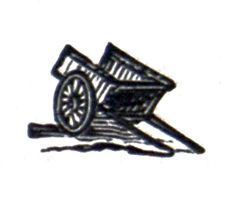
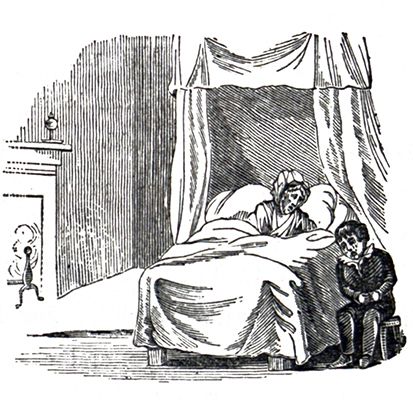
When Orrin was about fourteen years old, he met with the greatest affliction that could have been sent upon him. This was the death of his excellent mother. She was sick for a long time, and had a very good physician, but God did not see fit to restore her to health, and she was quite ready to submit to His will. Her only anxiety was for her son, and even this care she was able to commit to the Lord, who has promised to be a father to the fatherless. She talked much to Orrin, and told him that she had trained him up thus far, in the way he should go, and charged him not to depart from it.
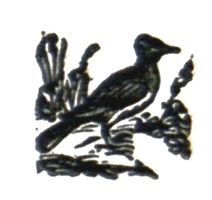
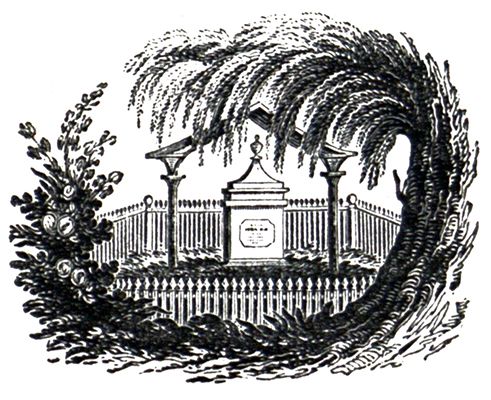
A great number of friends and neighbours followed Mrs. Pierce to the grave. She was greatly beloved by all who knew her, but none could mourn for her as her poor afflicted boy did. When he saw his mother laid in the grave, he felt as if he had not a friend on the earth. True, he had neither sister nor brother. His father died when he was an infant, and now his precious mother was taken away. But God could supply to him all that he had lost, and be to him more than all earthly friends, even one who would never leave him nor forsake him.
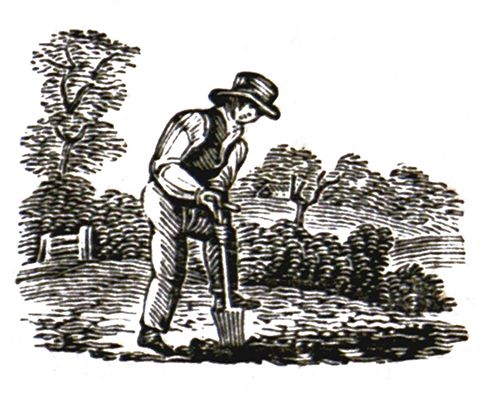
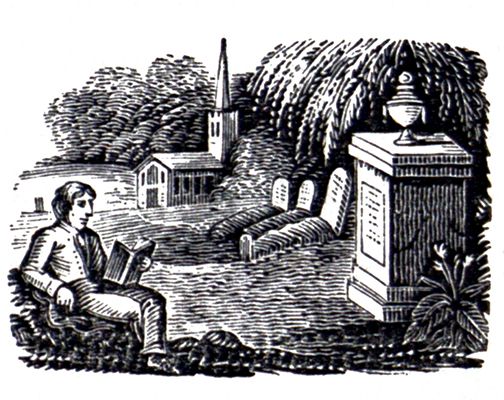
Day after day, Orrin went to the graveyard, to visit the tomb of his beloved parent. He used to take with him the Bible, which they had so often read together, and read those passages which she delighted in. He was much comforted by these words of the Lord Jesus Christ, "I am the resurrection and the life. He that believeth in me, though he were dead yet shall he live, and whosoever liveth and believeth in me shall never die. The hour is coming in the which all that are in their graves shall hear the voice of the Son of Man, and shall come forth; the followers of Christ to enter into heaven, and his enemies to be cast into hell."
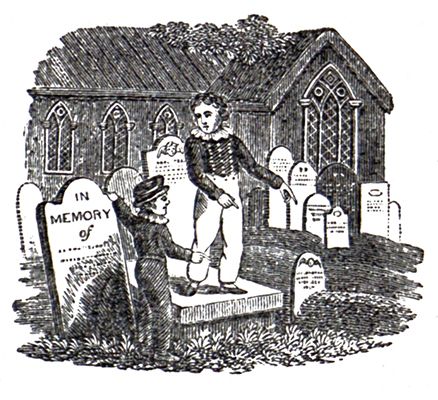
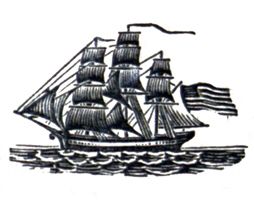
After his mother's death, Orrin went to live with a kind uncle, a brother of Mrs. Pierce, who lived a great distance off, so that Orrin went there in a ship. Then God raised up a friend for this orphan-boy. His uncle had a little daughter much younger than Orrin, whose name was Jane. As he never had a sister, it was very pleasant to have such a little companion as Jane. His aunt was very kind and affectionate to him, but no one was like his mother. Though he was very sad for a long time, he tried to overcome such feelings, and, by dutiful conduct, to show his kind uncle and aunt that he was grateful to them.
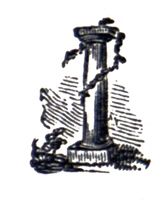
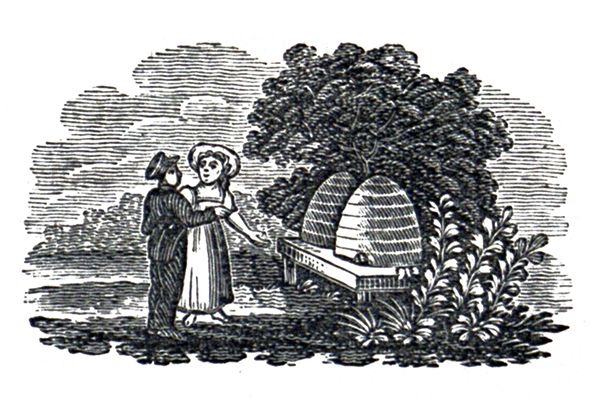
Jane had not received as much instruction as Orrin had, and he was very happy to tell her some of the things he had heard from his mother. One day, he and Jane were walking in the garden, and they stopped by the bee-hives to watch the bees go out to gather their stores, and return laden with sweets.
Orrin told Jane many curious facts about bees, which instructed her very much. He told her that they were always busy, and would not allow an idler to live in the hive. Orrin and Jane also attended Sunday-school together.
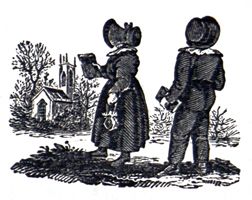
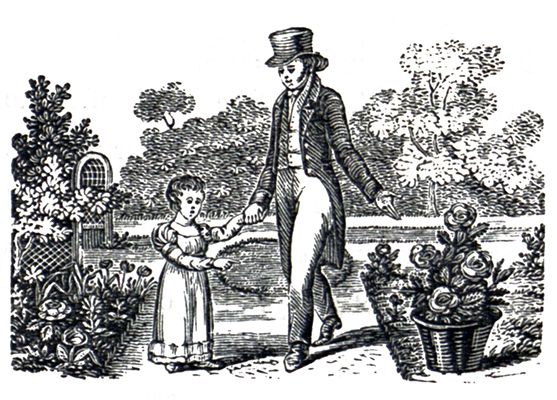
Jane used to walk and play in her father's garden, but she did not have one of her own. Her father used to tell her she might look at the flowers, but that she must not pick them, as she would injure them. But when Orrin came he gave Jane a garden by herself in which her cousin worked, and they both kept it in order, and it was a great pleasure to her to pick flowers whenever she liked. She used often to gather a pretty nosegay for her mother. Orrin used to say when he looked at her flowers, why even Solomon in all his glory was not arrayed like one of these.
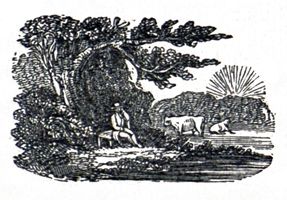
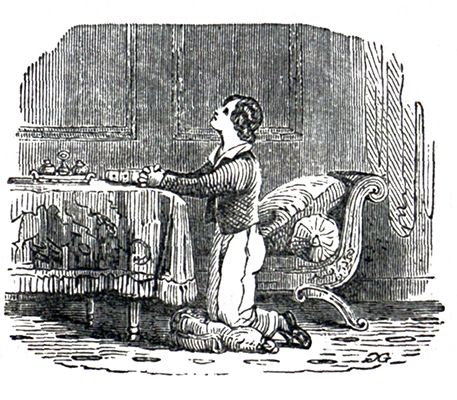
Many boys who have been taught by pious mothers to pray to God in childhood, when they become older forsake the law of their mother. They begin to think it is well enough for children, but not needful for men; but this was not the case with Orrin. He remembered what Solomon says of a mother's counsel: "When thou goest it shall lead thee; when thou sleepest it shall keep thee; and when thou wakest it shall talk to thee." Orrin read his Bible daily, and continued to pray to the God of his mother, and he kept in mind her instructions and always tried to act as he supposed his mother would wish.
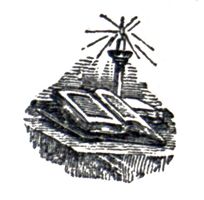
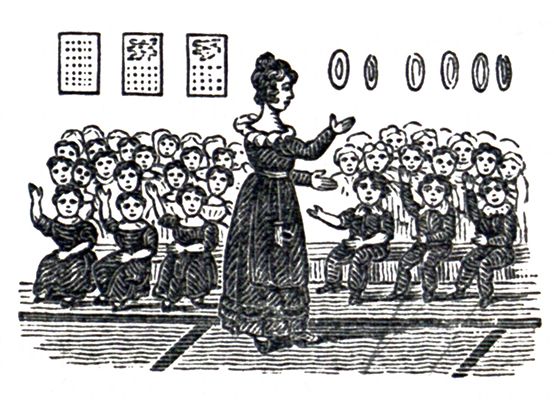
From the time he was old enough to behave properly, Orrin went to Sunday-school. He was in a room where only the little scholars attended, and they were taught by a very kind lady. She taught them from Scripture-cards, and they could say and sing many beautiful little hymns. He could also answer all the questions in a simple catechism. When he could read well, he went into the larger school, and was put into a class with some boys larger than himself. Some of them did not behave as well as Orrin did.
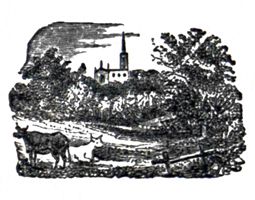
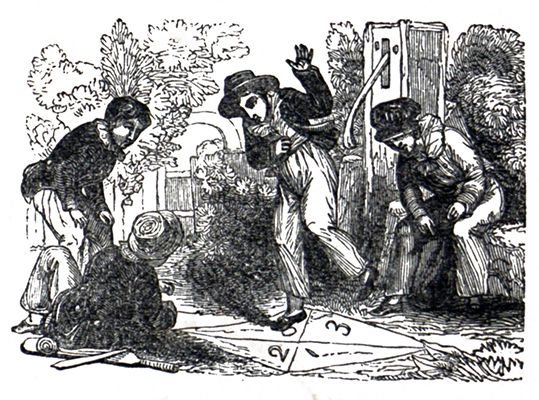
Orrin's mother loved to see her little boy play at proper times. She did not always require him to be studying, or reading books. When he went to play she was careful that his mates should be good boys who did not take the name of God in vain, or use coarse and vulgar language, or quarrel and fight. She told him always to treat his mates kindly, to be just and fair in his sports, and at all times to "do unto others as he would wish others to do unto him." She reminded him that "even a child is known by his ways," and that "cheating play never prospers."
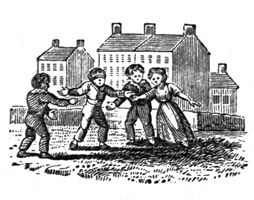
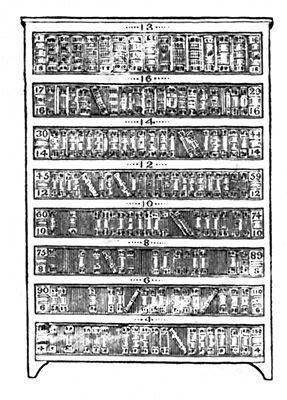
Wherever there is a library of useful books, a young person can gain a store of knowledge. Orrin was very fond of reading, and his uncle gave him the liberty of reading in his study, whenever he wished to do so. There Orrin spent many hours, gaining useful knowledge; and as he had a very good memory, he found, many years after, much use for the instruction he received in this way. Solomon says, "Get wisdom, get understanding, take fast hold of instruction, let her not go, keep her, for she is thy life."
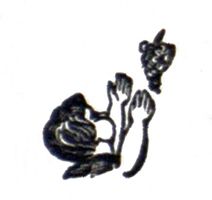
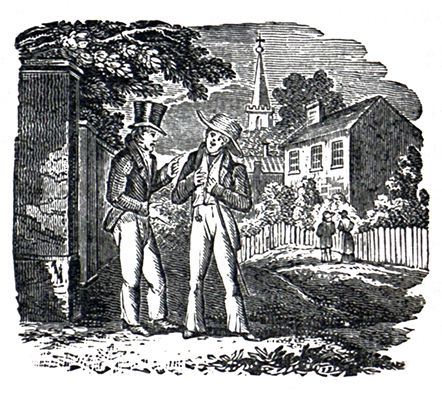
Those who have read the history of this good boy, will like to hear something of him as a man. He became not only a respectable, but a useful and pious man. He was a kind friend; he warned and reproved those he found doing wrong. When a man, he was as fearless in reproving sin as he was when a boy. If he saw a young man profaning the Sabbath day, he kindly warned him of his evil way and would invite him to go with him to the house of God. His example was, also, a silent teacher of all.
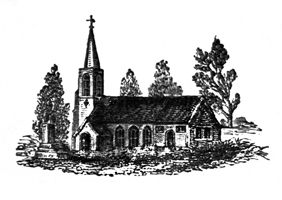
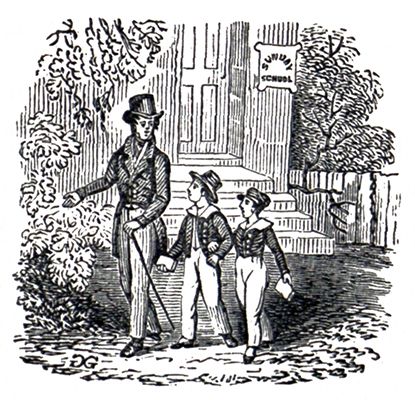
You will not be surprised to hear that Orrin became a Sunday-school teacher, nor that he knew how to teach in a way to profit his scholars. They all loved him very much, and never were absent from school unless they were sick. Here he is, just returning from Sunday-school. Two of his scholars are with him; they have their library-books in their hands. How orderly they walk by his side, talking with him about the lesson. It is a great blessing to have such a teacher.
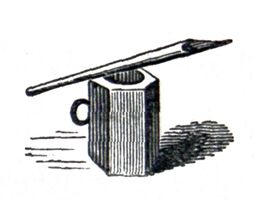
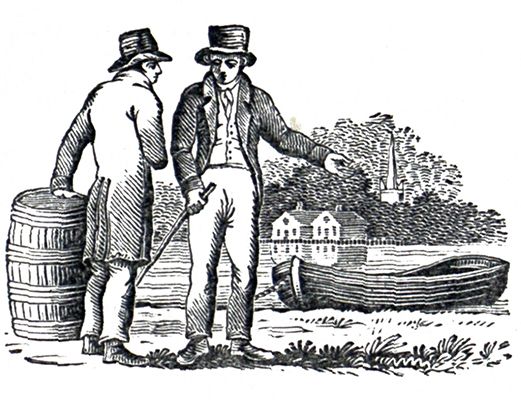
This picture may remind us of Orrin, for we may think of him as walking by the water-side with a friend. Perhaps he is speaking of the occupation of Christ's disciples, when he called them to preach the gospel. They left their ships and followed him. He is pointing to the church amid the trees, and says "I too would preach the gospel." No doubt he would make a useful minister of the gospel, for from his youth he has known the Scriptures, which are able to make him wise unto salvation. He may be thinking of Christ's words, Go ye unto all the world, and preach the gospel to every creature.
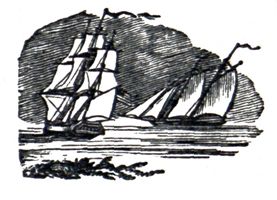
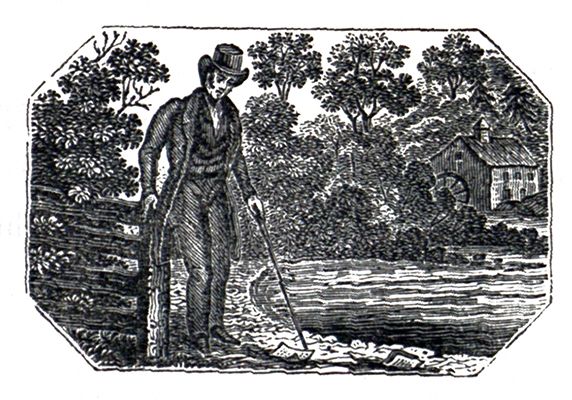
After much thought upon the subject, and having taken the advice of friends, Orrin determined to be a missionary. He went to bid farewell to the scenes of his childhood. He visited the cottage where he was born. He stood by the sea-side, where he had gathered shells, and listened to his mother's instructions; he walked in the fields where he had seen the lambs. And as he stood thinking over his days of childhood tears fell from his eyes, but they were tears of gratitude to God, for having given him a mother who taught him to love the service of God.

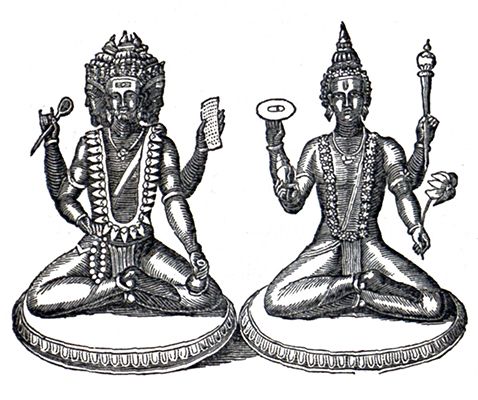
He at length goes to make known the way of salvation to those who never heard of a Saviour; to poor ignorant pagans, who worship idols, the work of their own hands. Many, like him, have gone to tell the perishing heathen of Jesus, who is the way, the truth, and the life. May all such reap a rich reward, and turn many to righteousness. May God incline the heathen to cast away their senseless idols, which have eyes that see not, and ears that hear not, and enter upon the service of Him who is worthy of all their love.
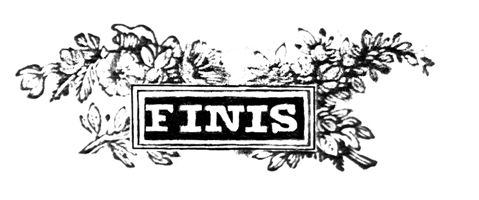
End of the Project Gutenberg EBook of History of Orrin Pierce, by
American Sunday-School Union
*** END OF THIS PROJECT GUTENBERG EBOOK HISTORY OF ORRIN PIERCE ***
***** This file should be named 44658-h.htm or 44658-h.zip *****
This and all associated files of various formats will be found in:
http://www.gutenberg.org/4/4/6/5/44658/
Produced by musicinme57, Demian Katz and the Online
Distributed Proofreading Team at http://www.pgdp.net (Images
courtesy of the Digital Library@Villanova University
(http://digital.library.villanova.edu/))
Updated editions will replace the previous one--the old editions
will be renamed.
Creating the works from public domain print editions means that no
one owns a United States copyright in these works, so the Foundation
(and you!) can copy and distribute it in the United States without
permission and without paying copyright royalties. Special rules,
set forth in the General Terms of Use part of this license, apply to
copying and distributing Project Gutenberg-tm electronic works to
protect the PROJECT GUTENBERG-tm concept and trademark. Project
Gutenberg is a registered trademark, and may not be used if you
charge for the eBooks, unless you receive specific permission. If you
do not charge anything for copies of this eBook, complying with the
rules is very easy. You may use this eBook for nearly any purpose
such as creation of derivative works, reports, performances and
research. They may be modified and printed and given away--you may do
practically ANYTHING with public domain eBooks. Redistribution is
subject to the trademark license, especially commercial
redistribution.
*** START: FULL LICENSE ***
THE FULL PROJECT GUTENBERG LICENSE
PLEASE READ THIS BEFORE YOU DISTRIBUTE OR USE THIS WORK
To protect the Project Gutenberg-tm mission of promoting the free
distribution of electronic works, by using or distributing this work
(or any other work associated in any way with the phrase "Project
Gutenberg"), you agree to comply with all the terms of the Full Project
Gutenberg-tm License available with this file or online at
www.gutenberg.org/license.
Section 1. General Terms of Use and Redistributing Project Gutenberg-tm
electronic works
1.A. By reading or using any part of this Project Gutenberg-tm
electronic work, you indicate that you have read, understand, agree to
and accept all the terms of this license and intellectual property
(trademark/copyright) agreement. If you do not agree to abide by all
the terms of this agreement, you must cease using and return or destroy
all copies of Project Gutenberg-tm electronic works in your possession.
If you paid a fee for obtaining a copy of or access to a Project
Gutenberg-tm electronic work and you do not agree to be bound by the
terms of this agreement, you may obtain a refund from the person or
entity to whom you paid the fee as set forth in paragraph 1.E.8.
1.B. "Project Gutenberg" is a registered trademark. It may only be
used on or associated in any way with an electronic work by people who
agree to be bound by the terms of this agreement. There are a few
things that you can do with most Project Gutenberg-tm electronic works
even without complying with the full terms of this agreement. See
paragraph 1.C below. There are a lot of things you can do with Project
Gutenberg-tm electronic works if you follow the terms of this agreement
and help preserve free future access to Project Gutenberg-tm electronic
works. See paragraph 1.E below.
1.C. The Project Gutenberg Literary Archive Foundation ("the Foundation"
or PGLAF), owns a compilation copyright in the collection of Project
Gutenberg-tm electronic works. Nearly all the individual works in the
collection are in the public domain in the United States. If an
individual work is in the public domain in the United States and you are
located in the United States, we do not claim a right to prevent you from
copying, distributing, performing, displaying or creating derivative
works based on the work as long as all references to Project Gutenberg
are removed. Of course, we hope that you will support the Project
Gutenberg-tm mission of promoting free access to electronic works by
freely sharing Project Gutenberg-tm works in compliance with the terms of
this agreement for keeping the Project Gutenberg-tm name associated with
the work. You can easily comply with the terms of this agreement by
keeping this work in the same format with its attached full Project
Gutenberg-tm License when you share it without charge with others.
1.D. The copyright laws of the place where you are located also govern
what you can do with this work. Copyright laws in most countries are in
a constant state of change. If you are outside the United States, check
the laws of your country in addition to the terms of this agreement
before downloading, copying, displaying, performing, distributing or
creating derivative works based on this work or any other Project
Gutenberg-tm work. The Foundation makes no representations concerning
the copyright status of any work in any country outside the United
States.
1.E. Unless you have removed all references to Project Gutenberg:
1.E.1. The following sentence, with active links to, or other immediate
access to, the full Project Gutenberg-tm License must appear prominently
whenever any copy of a Project Gutenberg-tm work (any work on which the
phrase "Project Gutenberg" appears, or with which the phrase "Project
Gutenberg" is associated) is accessed, displayed, performed, viewed,
copied or distributed:
This eBook is for the use of anyone anywhere at no cost and with
almost no restrictions whatsoever. You may copy it, give it away or
re-use it under the terms of the Project Gutenberg License included
with this eBook or online at www.gutenberg.org
1.E.2. If an individual Project Gutenberg-tm electronic work is derived
from the public domain (does not contain a notice indicating that it is
posted with permission of the copyright holder), the work can be copied
and distributed to anyone in the United States without paying any fees
or charges. If you are redistributing or providing access to a work
with the phrase "Project Gutenberg" associated with or appearing on the
work, you must comply either with the requirements of paragraphs 1.E.1
through 1.E.7 or obtain permission for the use of the work and the
Project Gutenberg-tm trademark as set forth in paragraphs 1.E.8 or
1.E.9.
1.E.3. If an individual Project Gutenberg-tm electronic work is posted
with the permission of the copyright holder, your use and distribution
must comply with both paragraphs 1.E.1 through 1.E.7 and any additional
terms imposed by the copyright holder. Additional terms will be linked
to the Project Gutenberg-tm License for all works posted with the
permission of the copyright holder found at the beginning of this work.
1.E.4. Do not unlink or detach or remove the full Project Gutenberg-tm
License terms from this work, or any files containing a part of this
work or any other work associated with Project Gutenberg-tm.
1.E.5. Do not copy, display, perform, distribute or redistribute this
electronic work, or any part of this electronic work, without
prominently displaying the sentence set forth in paragraph 1.E.1 with
active links or immediate access to the full terms of the Project
Gutenberg-tm License.
1.E.6. You may convert to and distribute this work in any binary,
compressed, marked up, nonproprietary or proprietary form, including any
word processing or hypertext form. However, if you provide access to or
distribute copies of a Project Gutenberg-tm work in a format other than
"Plain Vanilla ASCII" or other format used in the official version
posted on the official Project Gutenberg-tm web site (www.gutenberg.org),
you must, at no additional cost, fee or expense to the user, provide a
copy, a means of exporting a copy, or a means of obtaining a copy upon
request, of the work in its original "Plain Vanilla ASCII" or other
form. Any alternate format must include the full Project Gutenberg-tm
License as specified in paragraph 1.E.1.
1.E.7. Do not charge a fee for access to, viewing, displaying,
performing, copying or distributing any Project Gutenberg-tm works
unless you comply with paragraph 1.E.8 or 1.E.9.
1.E.8. You may charge a reasonable fee for copies of or providing
access to or distributing Project Gutenberg-tm electronic works provided
that
- You pay a royalty fee of 20% of the gross profits you derive from
the use of Project Gutenberg-tm works calculated using the method
you already use to calculate your applicable taxes. The fee is
owed to the owner of the Project Gutenberg-tm trademark, but he
has agreed to donate royalties under this paragraph to the
Project Gutenberg Literary Archive Foundation. Royalty payments
must be paid within 60 days following each date on which you
prepare (or are legally required to prepare) your periodic tax
returns. Royalty payments should be clearly marked as such and
sent to the Project Gutenberg Literary Archive Foundation at the
address specified in Section 4, "Information about donations to
the Project Gutenberg Literary Archive Foundation."
- You provide a full refund of any money paid by a user who notifies
you in writing (or by e-mail) within 30 days of receipt that s/he
does not agree to the terms of the full Project Gutenberg-tm
License. You must require such a user to return or
destroy all copies of the works possessed in a physical medium
and discontinue all use of and all access to other copies of
Project Gutenberg-tm works.
- You provide, in accordance with paragraph 1.F.3, a full refund of any
money paid for a work or a replacement copy, if a defect in the
electronic work is discovered and reported to you within 90 days
of receipt of the work.
- You comply with all other terms of this agreement for free
distribution of Project Gutenberg-tm works.
1.E.9. If you wish to charge a fee or distribute a Project Gutenberg-tm
electronic work or group of works on different terms than are set
forth in this agreement, you must obtain permission in writing from
both the Project Gutenberg Literary Archive Foundation and Michael
Hart, the owner of the Project Gutenberg-tm trademark. Contact the
Foundation as set forth in Section 3 below.
1.F.
1.F.1. Project Gutenberg volunteers and employees expend considerable
effort to identify, do copyright research on, transcribe and proofread
public domain works in creating the Project Gutenberg-tm
collection. Despite these efforts, Project Gutenberg-tm electronic
works, and the medium on which they may be stored, may contain
"Defects," such as, but not limited to, incomplete, inaccurate or
corrupt data, transcription errors, a copyright or other intellectual
property infringement, a defective or damaged disk or other medium, a
computer virus, or computer codes that damage or cannot be read by
your equipment.
1.F.2. LIMITED WARRANTY, DISCLAIMER OF DAMAGES - Except for the "Right
of Replacement or Refund" described in paragraph 1.F.3, the Project
Gutenberg Literary Archive Foundation, the owner of the Project
Gutenberg-tm trademark, and any other party distributing a Project
Gutenberg-tm electronic work under this agreement, disclaim all
liability to you for damages, costs and expenses, including legal
fees. YOU AGREE THAT YOU HAVE NO REMEDIES FOR NEGLIGENCE, STRICT
LIABILITY, BREACH OF WARRANTY OR BREACH OF CONTRACT EXCEPT THOSE
PROVIDED IN PARAGRAPH 1.F.3. YOU AGREE THAT THE FOUNDATION, THE
TRADEMARK OWNER, AND ANY DISTRIBUTOR UNDER THIS AGREEMENT WILL NOT BE
LIABLE TO YOU FOR ACTUAL, DIRECT, INDIRECT, CONSEQUENTIAL, PUNITIVE OR
INCIDENTAL DAMAGES EVEN IF YOU GIVE NOTICE OF THE POSSIBILITY OF SUCH
DAMAGE.
1.F.3. LIMITED RIGHT OF REPLACEMENT OR REFUND - If you discover a
defect in this electronic work within 90 days of receiving it, you can
receive a refund of the money (if any) you paid for it by sending a
written explanation to the person you received the work from. If you
received the work on a physical medium, you must return the medium with
your written explanation. The person or entity that provided you with
the defective work may elect to provide a replacement copy in lieu of a
refund. If you received the work electronically, the person or entity
providing it to you may choose to give you a second opportunity to
receive the work electronically in lieu of a refund. If the second copy
is also defective, you may demand a refund in writing without further
opportunities to fix the problem.
1.F.4. Except for the limited right of replacement or refund set forth
in paragraph 1.F.3, this work is provided to you 'AS-IS', WITH NO OTHER
WARRANTIES OF ANY KIND, EXPRESS OR IMPLIED, INCLUDING BUT NOT LIMITED TO
WARRANTIES OF MERCHANTABILITY OR FITNESS FOR ANY PURPOSE.
1.F.5. Some states do not allow disclaimers of certain implied
warranties or the exclusion or limitation of certain types of damages.
If any disclaimer or limitation set forth in this agreement violates the
law of the state applicable to this agreement, the agreement shall be
interpreted to make the maximum disclaimer or limitation permitted by
the applicable state law. The invalidity or unenforceability of any
provision of this agreement shall not void the remaining provisions.
1.F.6. INDEMNITY - You agree to indemnify and hold the Foundation, the
trademark owner, any agent or employee of the Foundation, anyone
providing copies of Project Gutenberg-tm electronic works in accordance
with this agreement, and any volunteers associated with the production,
promotion and distribution of Project Gutenberg-tm electronic works,
harmless from all liability, costs and expenses, including legal fees,
that arise directly or indirectly from any of the following which you do
or cause to occur: (a) distribution of this or any Project Gutenberg-tm
work, (b) alteration, modification, or additions or deletions to any
Project Gutenberg-tm work, and (c) any Defect you cause.
Section 2. Information about the Mission of Project Gutenberg-tm
Project Gutenberg-tm is synonymous with the free distribution of
electronic works in formats readable by the widest variety of computers
including obsolete, old, middle-aged and new computers. It exists
because of the efforts of hundreds of volunteers and donations from
people in all walks of life.
Volunteers and financial support to provide volunteers with the
assistance they need are critical to reaching Project Gutenberg-tm's
goals and ensuring that the Project Gutenberg-tm collection will
remain freely available for generations to come. In 2001, the Project
Gutenberg Literary Archive Foundation was created to provide a secure
and permanent future for Project Gutenberg-tm and future generations.
To learn more about the Project Gutenberg Literary Archive Foundation
and how your efforts and donations can help, see Sections 3 and 4
and the Foundation information page at www.gutenberg.org
Section 3. Information about the Project Gutenberg Literary Archive
Foundation
The Project Gutenberg Literary Archive Foundation is a non profit
501(c)(3) educational corporation organized under the laws of the
state of Mississippi and granted tax exempt status by the Internal
Revenue Service. The Foundation's EIN or federal tax identification
number is 64-6221541. Contributions to the Project Gutenberg
Literary Archive Foundation are tax deductible to the full extent
permitted by U.S. federal laws and your state's laws.
The Foundation's principal office is located at 4557 Melan Dr. S.
Fairbanks, AK, 99712., but its volunteers and employees are scattered
throughout numerous locations. Its business office is located at 809
North 1500 West, Salt Lake City, UT 84116, (801) 596-1887. Email
contact links and up to date contact information can be found at the
Foundation's web site and official page at www.gutenberg.org/contact
For additional contact information:
Dr. Gregory B. Newby
Chief Executive and Director
gbnewby@pglaf.org
Section 4. Information about Donations to the Project Gutenberg
Literary Archive Foundation
Project Gutenberg-tm depends upon and cannot survive without wide
spread public support and donations to carry out its mission of
increasing the number of public domain and licensed works that can be
freely distributed in machine readable form accessible by the widest
array of equipment including outdated equipment. Many small donations
($1 to $5,000) are particularly important to maintaining tax exempt
status with the IRS.
The Foundation is committed to complying with the laws regulating
charities and charitable donations in all 50 states of the United
States. Compliance requirements are not uniform and it takes a
considerable effort, much paperwork and many fees to meet and keep up
with these requirements. We do not solicit donations in locations
where we have not received written confirmation of compliance. To
SEND DONATIONS or determine the status of compliance for any
particular state visit www.gutenberg.org/donate
While we cannot and do not solicit contributions from states where we
have not met the solicitation requirements, we know of no prohibition
against accepting unsolicited donations from donors in such states who
approach us with offers to donate.
International donations are gratefully accepted, but we cannot make
any statements concerning tax treatment of donations received from
outside the United States. U.S. laws alone swamp our small staff.
Please check the Project Gutenberg Web pages for current donation
methods and addresses. Donations are accepted in a number of other
ways including checks, online payments and credit card donations.
To donate, please visit: www.gutenberg.org/donate
Section 5. General Information About Project Gutenberg-tm electronic
works.
Professor Michael S. Hart was the originator of the Project Gutenberg-tm
concept of a library of electronic works that could be freely shared
with anyone. For forty years, he produced and distributed Project
Gutenberg-tm eBooks with only a loose network of volunteer support.
Project Gutenberg-tm eBooks are often created from several printed
editions, all of which are confirmed as Public Domain in the U.S.
unless a copyright notice is included. Thus, we do not necessarily
keep eBooks in compliance with any particular paper edition.
Most people start at our Web site which has the main PG search facility:
www.gutenberg.org
This Web site includes information about Project Gutenberg-tm,
including how to make donations to the Project Gutenberg Literary
Archive Foundation, how to help produce our new eBooks, and how to
subscribe to our email newsletter to hear about new eBooks.